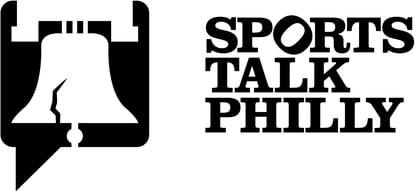For months, it had been speculated that the NHL's salary cap would increase by another $3 million. It made sense — since its inception 11 years ago, the salary cap had continued to grow on a yearly basis (save for the lockout-shortened 2012-13 season, but that was an extenuating circumstance).
But with the 2015-16 league year rapidly coming to an end, we're just weeks away from the NHL announcing next year's cap. Obviously, it will be announced just before the start of free agency — just so teams can get a general idea of how to spend when the free-agent market opens.
According to a report from Sportsnet's Elliotte Friedman, there's a slight chance the salary cap could dip below $70 million (beginning at the 1:24 mark, with a transcription below):
"As the players were told this week when they met for the NHLPA meetings, if they don't vote to increase the salary cap by five percent, there's a chance it could go down under $70 million next year. Not yet decided, but that's potentially what they've been told."
So what factors could result in a decreased salary cap? It's based off of league revenues, so as long as the game continues to grow, the revenue should as well. Figuring out the NHL's revenue for this season has been a bit tricky, though, with the steady fall of the Canadian dollar. All seven Canadian NHL teams have to pay with the American dollar, ultimately affecting their bottom line.
Should the salary cap decrease, how would that affect the Flyers' offseason? As per General Fanager, the Flyers have roughly $63.897 million dollars in salary for next season. That money is tied into 18 contracts (10 forwards, five defensemen and three goaltenders), compared to 27 this past season (15 forwards, eight defensemen and four goalies).
If the cap holds steady at $71.4 million, the Flyers would have $7.503 million in cap space for next season. Assuming it increases by $3 million as initially speculated ($74.4 million), it gives GM Ron Hextall $10.503 million to work with.
Nine Flyers from last year are due for new contracts this summer. Five of those players (Brayden Schenn, Nick Cousins, Jordan Weal, Radko Gudas and Brandon Manning), while four (Sam Gagner, Ryan White, Evgeny Medvedev and Ray Emery) are due for unrestricted free agency.
Now of those players, we can essentially see to it that two won't be coming back — Medvedev and Emery. White has expressed that he would like to return (even willing to take a pay cut to do so), while younger defensemen like Gudas and Manning may return as well. Gagner and Weal are toss-ups (though I'd expect at least a shorter-term extension for Weal), and Cousins' upside is too good to pass up.
The big question is what to do with Schenn. While Schenn wasn't exactly a world-burner for his first four years as a Flyer, the 2015-16 season saw the best output of his NHL career — particularly in the second half of the season. He set career-highs in goals (26, crossing the 20-goal mark for the second season of his career), assists (33) and points (59), and was one of the catalysts in the Flyers' push for the final playoff spot. It seemed as though he finally turned the corner in his development, but at the same time, it was still a contract year for him.
Schenn could very well be in line for a max deal (not unlike deals that the Flyers have offered to players such as Sean Couturier, Jakub Voracek and Claude Giroux in recent seasons), and it's reasonable to expect his cap hit to be roughly in line with Couturier's 4.3 million figure. The biggest hurdle in getting a deal done, though, is this cap situation. Of course, the possibility of trading his rights is still on the table as well, but considering his play in the latter half of the season and the Flyers' need for scoring depth, that's not the most probable outcome.
If there is one thing that Hextall has excelled at throughout his tenure as Flyers general manager, it's cap management. He has moved contracts that were previously thought to be unmovable (see also: Pronger, Chris), and has done remarkable work so far with the grim cap situation that he inherited. For now, though, it's worth taking a wait-and-see approach for what next year's salary cap would look like, and figuring out offseason contracts from there.
Rob Riches is a contributor to Flyerdelphia and Sports Talk Philly. Follow him on Twitter @Riches61

